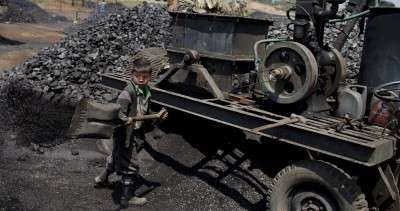Child workers in Vietnam face further exploitation

Vietnamese children as young as 11 are working for up to 18 hours a day in harsh and abusive conditions, often unpaid and denied communication with their families, a study shows.
The study, led by Professor Susan Kneebone of Monash University's Castan Centre for Human Rights law in collaboration with the children's foundation Blue Dragon, looks at the causes and consequences of child labour migration in Vietnam.
Child labour is an accepted concept in many rural Vietnamese communities. It helps supplement family income, and many parents also believe it could further their children's life chances and experiences.
But many children who move from central Vietnam to Saigon because of desperate financial circumstances at home, fall victim to deceptive practices by recruiters – often people known and trusted by the family.
Professor Kneebone said parents in the Thua Thien Hue province, where she conducted her research, were often not aware of where their children had been sent, the terms of their contracts or how to communicate with them once in Saigon.
"We found that in some circumstances 'recruiters' would approach children directly, with families only being told they would receive a wage," Professor Kneebone said.
"These experiences fall inside the definition of trafficking, since the work and the conditions agreed upon deviate substantially from the actual conditions in Saigon. Children are being expected to work long, physically demanding hours, or in bonded labour, with a prevalence of physical and sexual abuse."
The study looked at 57 households across five communities, of which 73 per cent had sent at least one child to Saigon.
Upon returning home, many children struggled to reintegrate into their home communities and high levels of depression, stress, and embarrassment were common. Many children wished to undertake further education, but financial issues and a lack of information meant they were unable to do so.
The researchers recommended raising awareness of the risks of sending children away to work through a range of measures including education programs targeting parents.
"We found through our studies that parents who had sent their children away had low levels of literacy and formal education, adding to the understanding that with better education, parents can make more informed decisions," Professor Kneebone said.
Provided by Monash University

















